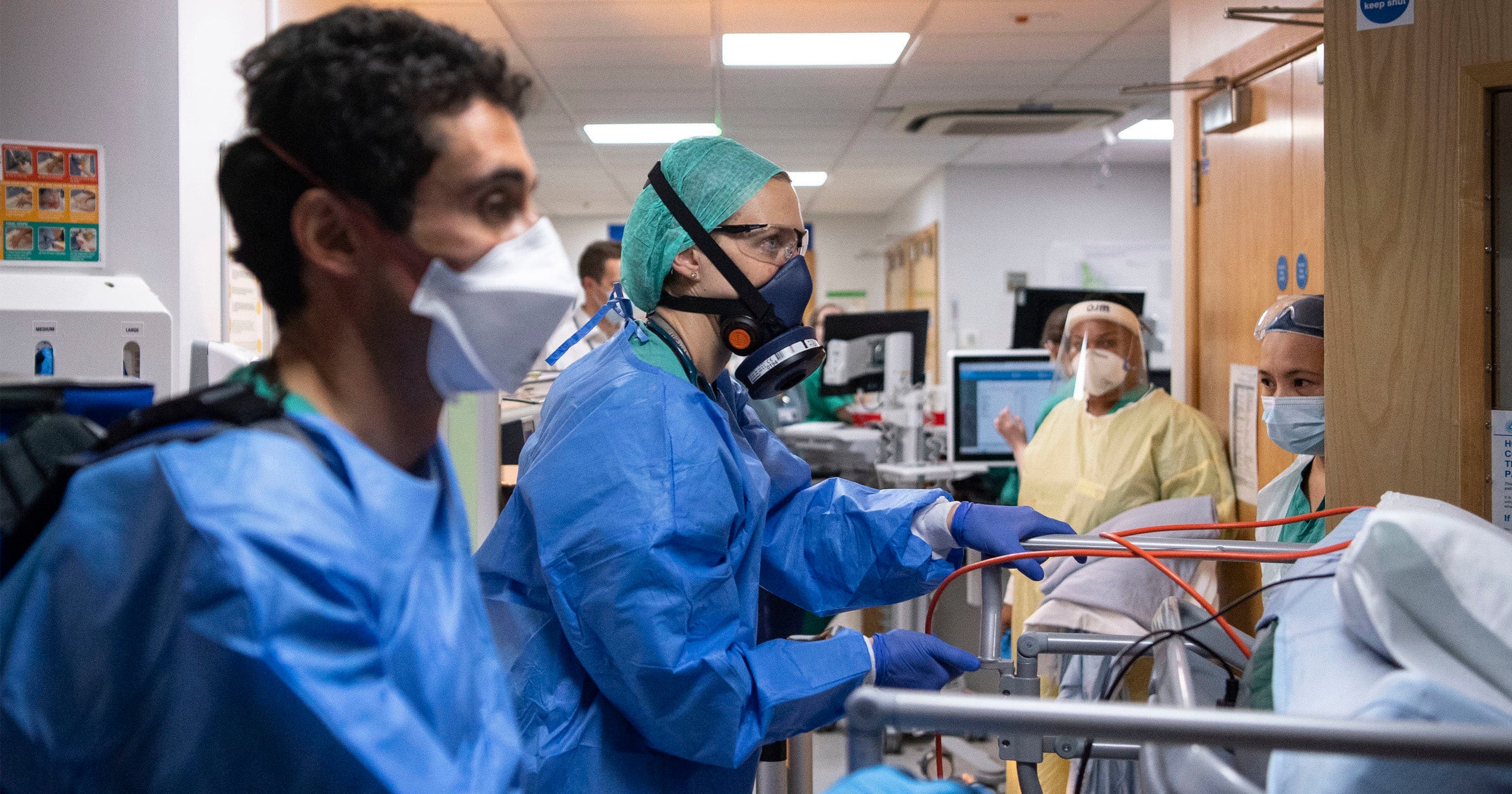Coronavirus: NHS was ‘overwhelmed’ in January surge, study finds
Cancer operations and emergency surgery were cancelled as more than 4 in 10 operating theatres closed

Your support helps us to tell the story
From reproductive rights to climate change to Big Tech, The Independent is on the ground when the story is developing. Whether it's investigating the financials of Elon Musk's pro-Trump PAC or producing our latest documentary, 'The A Word', which shines a light on the American women fighting for reproductive rights, we know how important it is to parse out the facts from the messaging.
At such a critical moment in US history, we need reporters on the ground. Your donation allows us to keep sending journalists to speak to both sides of the story.
The Independent is trusted by Americans across the entire political spectrum. And unlike many other quality news outlets, we choose not to lock Americans out of our reporting and analysis with paywalls. We believe quality journalism should be available to everyone, paid for by those who can afford it.
Your support makes all the difference.The NHS “was largely overwhelmed” at the height of the UK’s Covid second wave in January, according to a study.
New research published in Anaesthesia, a journal of the Association of Anaesthetists, revealed the scale of the pressure on hospitals during the pandemic and how stretched some units were.
Based on surveys of all NHS hospitals, with more than half responding, the study found almost a third of anaesthetists were redeployed to look after critically ill patients, leaving 42 per cent of operating theatres closed.
This meant operations, including for cancer and emergency surgery patients, had to be cancelled.
The research, by Professor Tim Cook, a consultant in anaesthesia and intensive care at the Royal United Hospitals Bath Foundation Trust, said: “Three-quarters of critical care units were so expanded that planned surgery could not be safely resumed. At all times, the greatest resource limitation was staff.”
It is thought the findings are an underestimate of how bad the situation really was in some hospitals because the busiest units were less able to respond to the survey.
During the January surge more than 100,000 Covid patients were admitted to hospitals in England, with numbers peaking at almost 40,000 in a single day across the UK – double the numbers seen in the April 2020 peak.
Prof Cook said the impact of the Covid wave hit all types of surgery. He said: “There was important regional variation and in hard-pressed regions, paediatric and non-cancer surgery fell to 12-20 per cent of normal activity and even cancer surgery, usually considered an urgent priority, fell to below half of normal activity."
Between October 2020 and January 2021, the team carried out three national surveys to track anaesthetic, surgical and critical care activity.
Even before the January peak doctors reported significant impact on services as cases began to rise through the autumn as the Kent variant emerged.
During the autumn, as many as one in eight anaesthetic staff were moved from anaesthesia work leaving one in five operating theatres closed. Some surgeries were relocated to different hospitals or private providers but even still a quarter of all surgical activity was lost.
Earlier this month it emerged a record five million people were now waiting for routine hospital treatment, the worst performance since 2007.
In total more than 436,000 patients were waiting longer than 52 weeks for hospital treatment by the end of March this year, up from 387,000 in February.
The researchers warned tackling the backlogs will mean extra work for NHS staff including anaesthetists for several years.
Dr Mike Nathanson, President of the Association of Anaesthetists, said: "These important surveys demonstrate the pressure anaesthetists and anaesthetic departments were under during the pandemic surges. The impact on the mental and physical wellbeing of our colleagues is still being felt.
“The impact on the health of the nation, in terms of the expanding waiting lists for investigations and surgery, is a huge concern. Workforce shortages and the inability for many of our trainee anaesthetists to progress their careers due to the lack of suitable jobs will accentuate this backlog, even without any further surges."
Last week The Independent revealed almost 700 anaesthetists in training have been told they won’t have jobs in the NHS training scheme from August, despite widespread shortages in hospitals. Nine out of 10 hospital units have at least one consultant anaesthetist vacancy, the Royal College of Anaesthetists has said.
Professor Ravi Mahajan, president of the Royal College of Anaesthetists, said: "In the rush to reduce the backlog, we must not forget the enormous physical and psychological toll that working in the pandemic has had on anaesthetists. Any attempt to go too fast risks staff cutting back on hours or leaving the profession altogether, jeopardising the sustainability of the NHS.
“It is vital that we take onboard the lessons from the past year, so we are able to identify areas for improvement, plan a sustainable NHS recovery and respond more effectively to future pandemics."
An NHS England spokesperson said: “Treating around 400,000 covid patients over the past year, along with implementing additional safety measures, has inevitably had a knock-on effect on non-urgent care, but NHS staff continued to care for millions of non-covid patients, performing more than two million operations and other treatments in the first two months of this year alone.
“With the rollout of the vaccination programme successfully underway, the NHS is already bouncing back from the pandemic and funding new ways to restore elective care as well as strengthening the workforce, with a 35 per cen increase in nursing degree applications and 11,000 more nurses, 6,000 more doctors and 10,000 more healthcare support workers joining the health service this year.”



Join our commenting forum
Join thought-provoking conversations, follow other Independent readers and see their replies
Comments